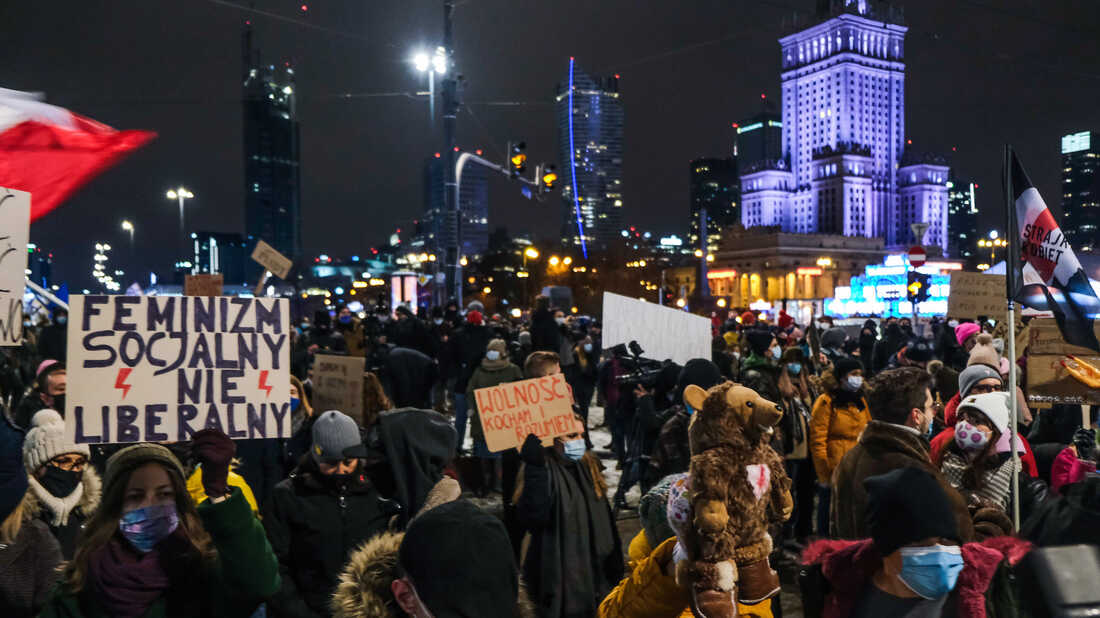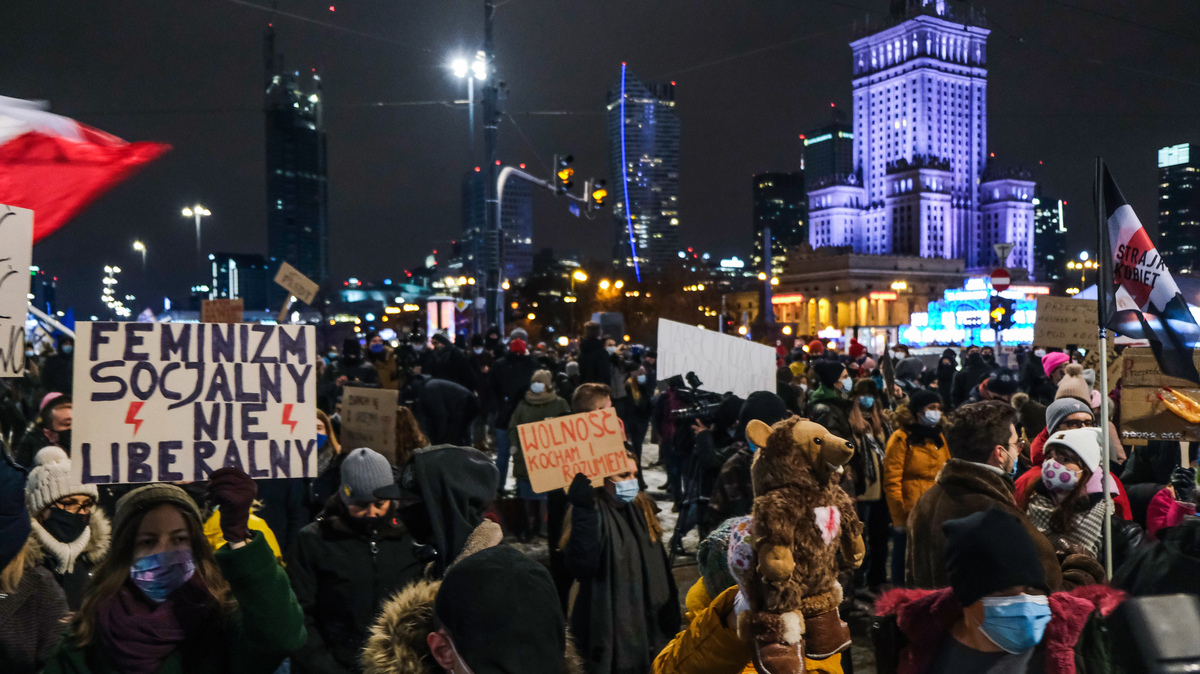
People hold banners and shout slogans during a protest against the near-total ban on abortion on January 29, 2021 in Warsaw, Poland. Getty Images hide caption

People hold banners and shout slogans during a protest against the near-total ban on abortion on January 29, 2021 in Warsaw, Poland.
Getty ImagesDozens of states could soon take steps to ban or restrict abortion. But there are a lot of unanswered questions about how those laws would be enforced if they vary from state to state, Kim Mutcherson tells NPR. That patchwork of laws is the most likely outcome if the Supreme Court overturns Roe v Wade, leaving the U.S. without a federally-protected right to abortion.
That's the reality in Poland, where abortion is almost entirely illegal. NPR's Ari Shapiro reports on an underground network of reproductive rights activists who risk prison time to help abortion patients.
Email us at
This episode was produced by Elena Burnett, Matt Ozug, Jonaki Mehta, and Brent Baughman. It was edited by Courtney Dorning, Sami Yenigun, and Ashley Brown. Our executive producer is Cara Tallo.

 Live Radio
Live Radio